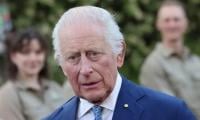DOHA/ISLAMABAD: After decades of internecine war, Saturday saw the Afghan government and the Taliban sitting face to face on the negotiating table in Qatar to explore ways for ‘lasting peace’ in the war-plagued country.
In his opening remarks, Qatari Foreign Minister Sheikh Mohammed bin Abdulrahman Al Thani asked the Afghan parties to keep an open mind during the talks.
He said the long-warring parties "must make the decisive decision in line with the current challenges and rise above all forms of divisions and honour the ambitions and aspirations of their people … by reaching an agreement on the basis of no victor and no vanquished".
US Secretary of State Mike Pompeo heralded the pace talks as a "truly momentous" breakthrough in nearly two decades of relentless conflict.
The talks will be arduous and complex, delegates acknowledged at the opening ceremony in Doha, and are starting even as deadly violence continues to grip Afghanistan.
"We will undoubtedly encounter many challenges in the talks over the coming days, weeks and months," Pompeo said as he called for the warring sides to "seize this opportunity" to secure peace.
"Remember you are acting not only for this generation of Afghans, but for future generations as well, your children and your grandchildren."
“It took hard work and sacrifice to reach this moment, and it will require hard work and sacrifice to keep it alive, and to take advantage of it so that the talks result in a durable peace.”
“I urge you to engage the representatives of all Afghan communities - including women, ethnic and religious minorities, and the victims of your country’s long war.”
“The choice of your future political system is, of course, yours to make ... The United States does not seek to impose its system on others. We believe firmly that protecting the rights of all Afghans is the best way for you to break the cycle of violence.”
“As you make your decisions, you should keep in mind that your choices and conduct will affect both the size and scope of future U.S. assistance.”
Abdullah Abdullah, who is heading the peace process for Kabul, said 12,000 civilians had been killed and another 15,000 wounded just since the US signed a withdrawal agreement with the Taliban on February 29.
“We must seize the exceptional opportunity for peace and jointly define a new future that is accepted and supported by all Afghan citizens.”
“We do not have to agree 100% on each of the issues before us. We can come up with different options and intermediate solutions that provide the basis for agreement on the core and central points.”
“We call for a humanitarian ceasefire ... This will enable humanitarian aid and development programs to reach all parts of Afghanistan and benefit our people.”
Abdullah called for an immediate, humanitarian ceasefire -- but his plea went unanswered by Taliban co-founder Mullah Abdul Ghani Baradar, who made no mention of a truce in his opening remarks.
Instead, Baradar repeated their message that Afghanistan should be run according to Islamic law, highlighting what likely will be the main sticking point in negotiations.
Norwegian Foreign Minister Ine Eriksen Soreide urged all sides to include "women, victims and minorities and other stakeholders" in the process, saying such inclusivity is the key to an enduring accord.
Zalmay Khalilzad, the US envoy who led talks with the Taliban, said the timetable for foreign troops to quit Afghanistan by May remained on track, and that he wanted a comprehensive ceasefire before then.
President Donald Trump, up for re-election in November, has pushed hard to end the United States´ longest war.
Khalilzad cautioned that Washington would not underwrite a future Afghan state that was not in line with "universal values", including women´s rights.
"There is no blank cheque," Khalilzad said.
Nato Secretary General Jens Stoltenberg said, “After decades of conflict, these talks are the best chance of peace. We have to embrace them wholeheartedly and keep in mind the ultimate goal: to end the violence ... A peaceful and stable Afghanistan is in everybody’s interest.”
“Nato is committed to training and funding Afghan security forces to help safeguard the Afghan people,” he said.
United Nations Secretary General Antonio Guterres SAID, “An inclusive peace process in which women, youth and victims of conflict are meaningfully represented offers the best hope of a sustainable solution.”
Women must be allowed to “participate in a variety of roles and that the peace process reflects the experience & expertise of Afghan women in all their diversity.”
“It is my hope that progress towards peace can lead to the return of millions of Afghans displaced internally and across borders to their homes.”
China State Councillor and Foreign Minister Wang Yi SAID, “Cessation of violence and durable peace is the strongest wish of over 37 million Afghan people and the shared expectation of the regional countries and the international community.”
Turkey’s Foreign Minister Mevlut Cavusoglu said, “A humanitarian ceasefire must be the priority at the beginning. Fighting and talking cannot go together.”
“Afghanistan will need the international community’s support more than ever ... We are ready to contribute to this process in every possible way including hosting one round of the talks.”
India’s External Affairs Minister Subrahmanyam Jaishankar said, “Any peace process must be Afghan-led, Afghan-owned and Afghan-controlled ... The interests of the minorities, women and the vulnerable must be ensured.”
“The rising levels of violence cannot be allowed to continue, and like others we support an immediate comprehensive ceasefire.”
Spanish Foreign Affairs Minister Arancha Gonzalez said, “We call on the Taliban to ensure a ceasefire and a reduction of violence.”
“We stress the importance of inclusive negotiations - all stakeholders are to be heard and allowed to contribute. The distinctive role of women and girls is essential for the future of Afghanistan.”
European Union top diplomat Josep Borrell said, “We urge the parties to accompany the start of the peace talks with an immediate, comprehensive, nationwide and unconditional ceasefire. With this new chapter opening, a mere reduction of violence is no longer enough.”
“The talks must preserve & build on the political, economic and social achievements of the citizens of Afghanistan since 2001, especially on women’s rights.”
Pakistan said it was gratified to see the world adhering to its long-standing demand that there was no military but political solution to the problem.
Ambassador Mohammad Sadiq represented Pakistan, while Foreign Minister Shah Mehmood Qureshi virtually attended the event from Islamabad.
Calling it a ‘historic occasion’, Qureshi said a long phase of tribulations seemed to be ending and a new dawn was upon the stakeholders.
He emphasised that Pakistan stood by the Afghans in every possible way and encouraged reduction in violence and resumption of dialogue.
He said Pakistan’s role in bringing the Taliban to the negotiating table was not easy and the major powers had acknowledged it.
“Commencement of intra-Afghan negotiations today is the fruit of our combined efforts,” Qureshi said.
Pakistan on the occasion pledged continued support to the Afghan-led and Afghan-owned peace process while respecting the consensus emerging from the intra-Afghan negotiations.
He asked the world capitals to ensure that Afghanistan neither slipped back to violence nor did it become a sanctuary for elements that would harm others beyond the Afghan borders.
He said an economically sustainable Afghanistan was important for the cash-starved Pakistan to ensure a well-resourced, time-bound return of Afghan refugees to their homeland with dignity and honour.
“This journey has not been easy. There have been obstacles and setbacks and moments of doubt and despair. Yet, progress has been made and preserved. Arriving at this inflection point has been an accomplishment, and this success belongs, first and foremost, to the Afghans,” Qureshi said which addressing the ceremony.
“It is now for the Afghan leaders to seize this historic opportunity, work together constructively, and secure an inclusive, broad-based and comprehensive political settlement and the forthcoming negotiations are for the Afghans to decide about their future, he added.
He said the Afghans alone must be the masters of their destiny, without outside influence or interference.
“Spoilers, from within and without will pose formidable challenges. Constant vigilance will be required to guard against their machinations,” he cautioned.
The foreign minister reminded that besides Afghanistan, Pakistan suffered the most from the Afghan conflict.
“Over the past 40 years, we have endured terrorist attacks, loss of precious lives, mass population displacements, instability at the borders, and huge economic costs. But we have persevered in the face of all difficulties and negativity,” he said.
During hearing, 41 accused, including provincial Minister Meena Khan and MNA Asif Khan, appeared before court
Peshawar City Senior Vice President Malik Aslam and General Secretary Taqdeer Ali resigned from their posts
As token of appreciation, KP Culture and Tourism Authority presented them with traditional shawls
Building fires are common in India due to lack of firefighting equipment and routine disregard for safety regulations
He was speaking at United Nations Climate Change Conference in Baku, Azerbaijan
Buried in debt, developing countries do not want the money to come in the form of loans







